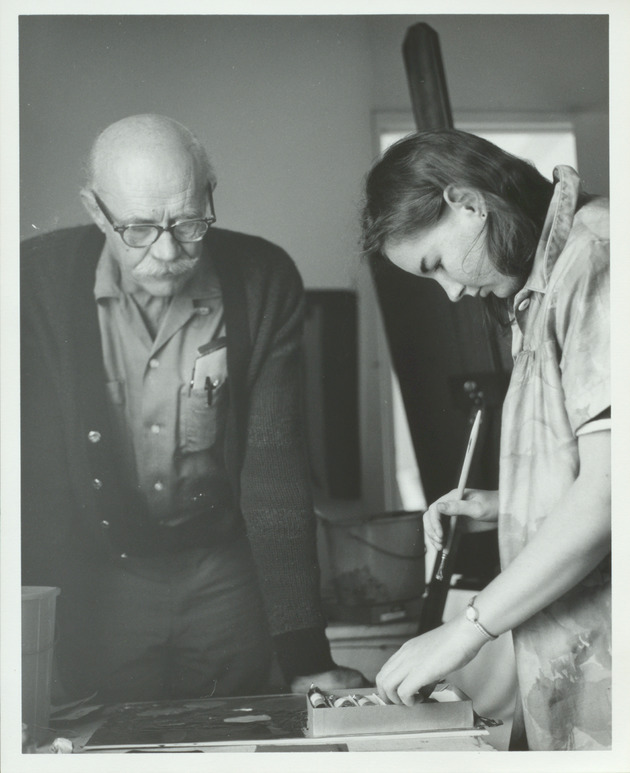Professors can hold a variety of different titles, including assistant professor, associate professor and simply, professor, but it can often be confusing to know what these titles truly mean. The difference in these titles comes down to tenure, which gives professors job security, allowing them to teach, conduct research and provide service to students in ways they see fit.
At New College there are four academic divisions: Humanities, Natural Sciences, Social Sciences and Interdisciplinary Studies. Professors are reviewed each year by the chair of their respective division. When it comes to tenure, professors are reviewed by the Provost Advisory Committee (PAC), of which there are three, each with its own chair. The current chairs are Professor of Mathematics Patrick McDonald, Professor of Mathematics Eirini Poimenidou and Professor of Spanish Language & Literature Jose Portugal. A tenure-track professor has a review scheduled for the spring of their second and fourth year to evaluate their teaching, research and service provided to students. The chairs are then in charge of sending recommendation letters to Provost Barbara Feldman after the review process. In between PAC reviews, professors have a third-year retention vote, where if a positive vote is presented, the professor is retained for the next specified amount of years.
Students can be involved in the tenure process and, by extension, the selection of faculty members at New College in two ways. The first is course evaluations given by students at the end of each semester. The second is the call to letters where students and faculty members can send in letters regarding a professor’s “teaching and scholarship, and service to the college, the profession and the community,” as stated by McDonald in an email sent out to students and faculty.
“The [course] evaluations are very important,” Portugal said. “It’s the only evaluation in the file that can be introduced without a signature. I always try to remark to my students that they have in their hands a very important evaluation and also a very privileged one, which is good because students can be frank about their evaluation, but they have to be responsible. With every kind of privilege that you have you have a higher level of responsibility.”
After the first two PAC reviews, professors enter their final year of review in which the seventh-year review is held.
“In their final year of review, a candidate for tenure submits a complete portfolio of work and accomplishments performed since their hire,” Feldman stated in an email interview. “This portfolio is reviewed by outside reviewers, the division, the Provost Advisory Council (made up of tenured faculty from across the college), the Provost, the President and the Board of Trustees.”
PAC reviews often involve promotion from assistant professor to associate professor and from associate professor to professor. Assistant professors are tenure-track entry level positions. When new professors are hired, most, but not all, will receive a tenure-track position.
Professors not in tenure-track positions hold the rank of either adjunct professor or visiting professor. Adjunct professors are typically only at the college for a semester, during which they teach a course or courses specified in their appointment letter.
Visiting professors are similar to adjunct professors, but are typically hired for a full semester or longer, during which they teach specific courses, usually offering new classes that were not offered before. An example of a visiting professor is Visiting Assistant Professor of Creative Writing Emily Carr, who offers creative writing courses to explore the viability of having a creative writing area of concentration (AOC).
“A visiting professor is a term appointment, Feldman said. “Sometimes visitors are hired to replace faculty who are on leave for the year and sometimes they are multi-year appointments for the purposes of bringing additional expertise to the college.”
Outside of providing stability to a professor’s employment, tenure serves as a tool to protect academic freedom. A tenured professor can only be fired with just cause, which allows professors to hold a sense of control over the ways in which they conduct their classes, research and service to the community. Without the process of tenure in place, institutions would have complete control over their faculty.
“The larger definition of tenure is an appointment that is indefinite in time and that can only be stopped by cause,” Portugal said. “That’s the fundamental idea of tenure, but the point of tenure is that it’s always been seen as central to protecting academic freedom. Faculty are free t o do research and communicate their results of their research. Faculty are free to teach and be open and frank about the material that they teach without fear that they will be censored or fired.”
Tenure is an important part of any college institution, but at New College, students have a way of being involved in the process. Through course evaluations and calls for letters, students have the tools to have a voice in academic processes, allowing New College to have professors who will provide useful contributions to the community.
Information for this article was gathered from the NCF Faculty Handbook 2019-2020

